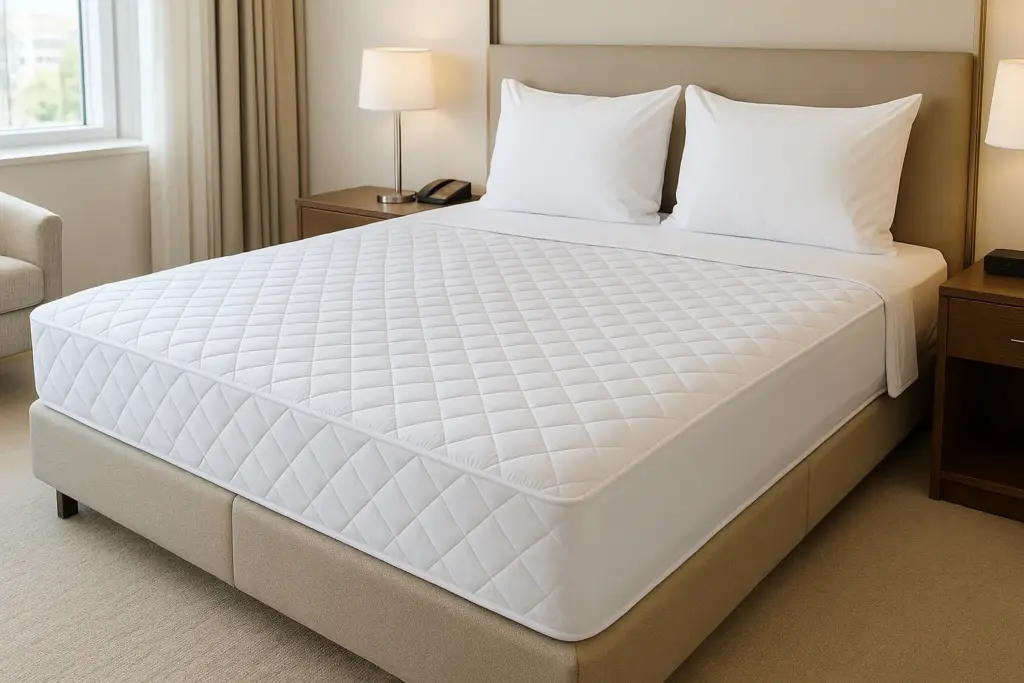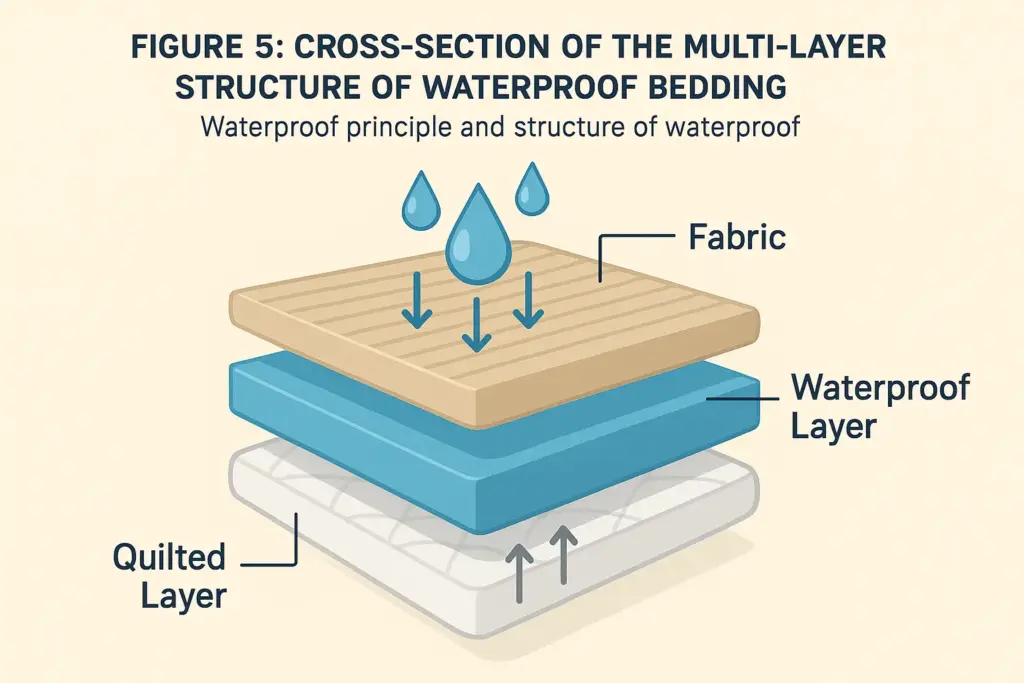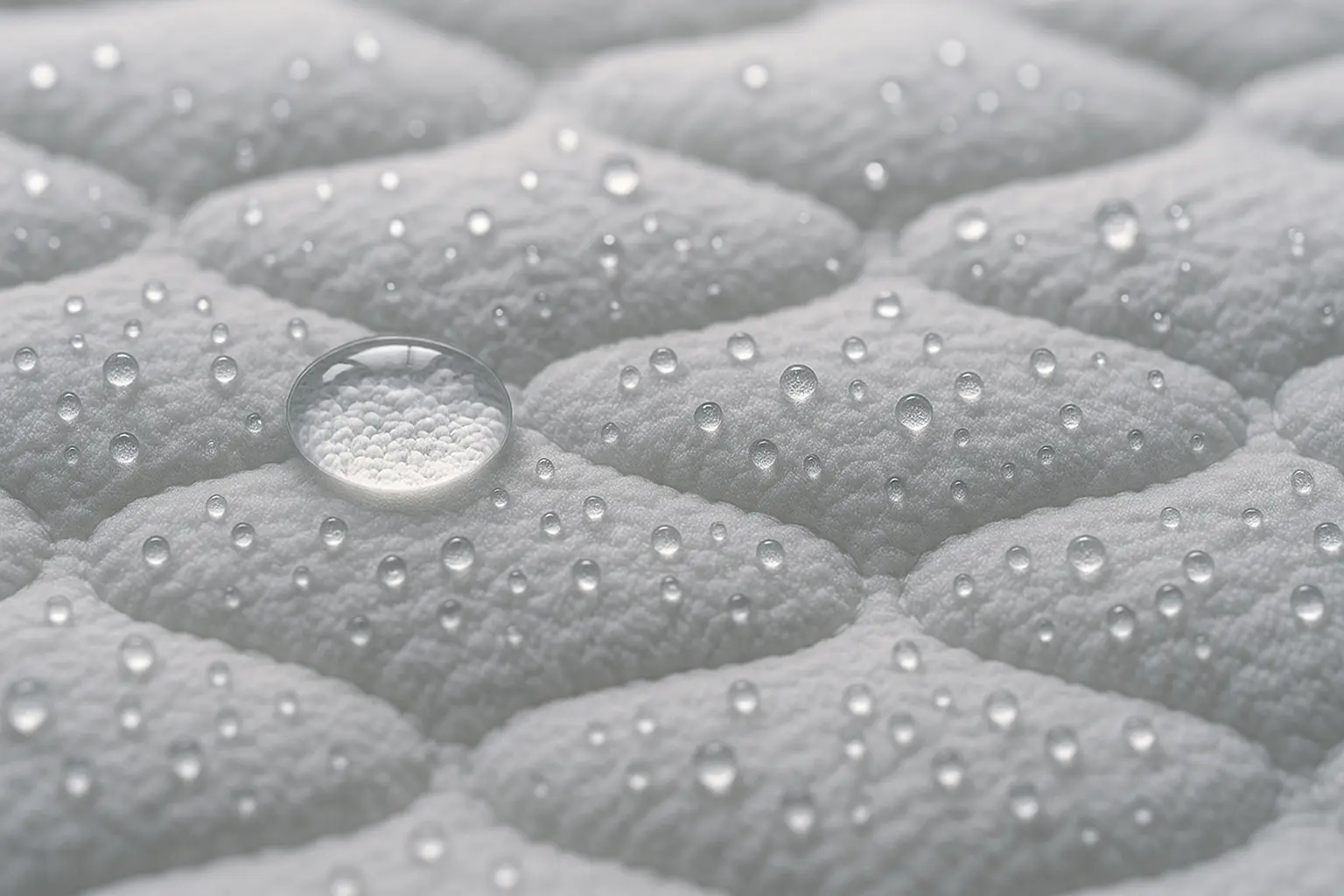In commercial and institutional settings, bedding must not only provide comfort but also meet strict standards for hygiene, durability, and ease of care. Waterproof fabrics play a crucial role in protecting mattresses, pillows, and bedding layers from moisture, stains, and allergens—especially in environments with high usage turnover such as hotels, healthcare facilities, dormitories, and childcare centers.
This article explores how waterproof fabrics are used in bedding applications, their core benefits, and what commercial buyers should consider when sourcing waterproof bedding products.
What Is Waterproof Fabric?
Waterproof fabric is a textile engineered to prevent the penetration of liquids. In bedding applications, this is typically achieved through lamination or coating processes that bond a waterproof layer—such as TPU (thermoplastic polyurethane) or PVC (polyvinyl chloride)—to a soft, breathable fabric like cotton, polyester, or bamboo blends.
Unlike water-resistant materials, waterproof fabrics offer complete liquid barrier protection, even under pressure or prolonged exposure.

Key Benefits in Bedding Applications
1. Moisture Barrier
Waterproof fabrics prevent liquids—such as sweat, spills, or bodily fluids—from reaching mattresses and pillows. This extends the lifespan of core bedding products and maintains hygiene standards in hospitality and healthcare settings.
2. Allergen & Dust Mite Protection
By sealing off the inner layers, waterproof encasements help block allergens and dust mites, creating a healthier sleep environment—especially important in elder care or pediatric facilities.
3. Odor and Stain Resistance
Waterproof bedding reduces the risk of odor buildup and staining, simplifying maintenance and improving room turnover efficiency.
4. Washability & Durability
Modern waterproof fabrics are designed to withstand industrial laundering, high-temperature washing, and frequent usage without degrading or delaminating.
Common Waterproof Bedding Products
| Product Type | Typical Construction | Ideal For |
|---|---|---|
| Mattress Protectors | Terry cloth top + TPU or PE backing | Hotels, nursing homes, rentals |
| Pillow Protectors | Polyester knit + waterproof membrane | Allergy-sensitive environments |
| Fitted Sheets with Liner | Dual-layer cotton/polyester with hidden waterproofing | Pediatric and elder care units |
| Mattress Encasements | Zippered, full-coverage waterproof barrier | Infection control zones |
Use Cases in Commercial Environments
- Hotels & Resorts: Protect mattresses from beverage spills, guest accidents, and sweat without compromising on guest comfort.
- Hospitals & Clinics: Essential for infection control and patient hygiene in intensive care and general wards.
- Student Housing: Waterproof solutions simplify room turnover and reduce mattress replacement costs.
- Childcare Centers: Ideal for nap mats and cribs prone to spills and soiling.

What to Look for When Sourcing Waterproof Bedding
| Feature | Why It Matters |
|---|---|
| Breathability | Avoids overheating; look for TPU-laminated cotton blends |
| Noise-Free Design | Ensures a quiet, restful sleep experience |
| Hypoallergenic Materials | Enhances guest comfort and broadens suitability |
| Certified Safety | OEKO-TEX®, REACH compliance for peace of mind |
| Secure Fit & Closure | Prevents shifting; zip or deep-pocket designs recommended |
Conclusion
Waterproof bedding fabrics are more than a protective barrier—they are a value-add for businesses that prioritize hygiene, longevity, and customer satisfaction. As commercial-grade mattress and pillow protectors become increasingly sophisticated, procurement managers and specifiers should prioritize breathable, washable, and certified waterproof options tailored to the demands of their industry.
Whether you’re furnishing a hotel, hospital, or high-traffic dormitory, incorporating waterproof fabric into your bedding lineup is a smart, long-term investment in both asset protection and guest well-being.


Leave a Reply